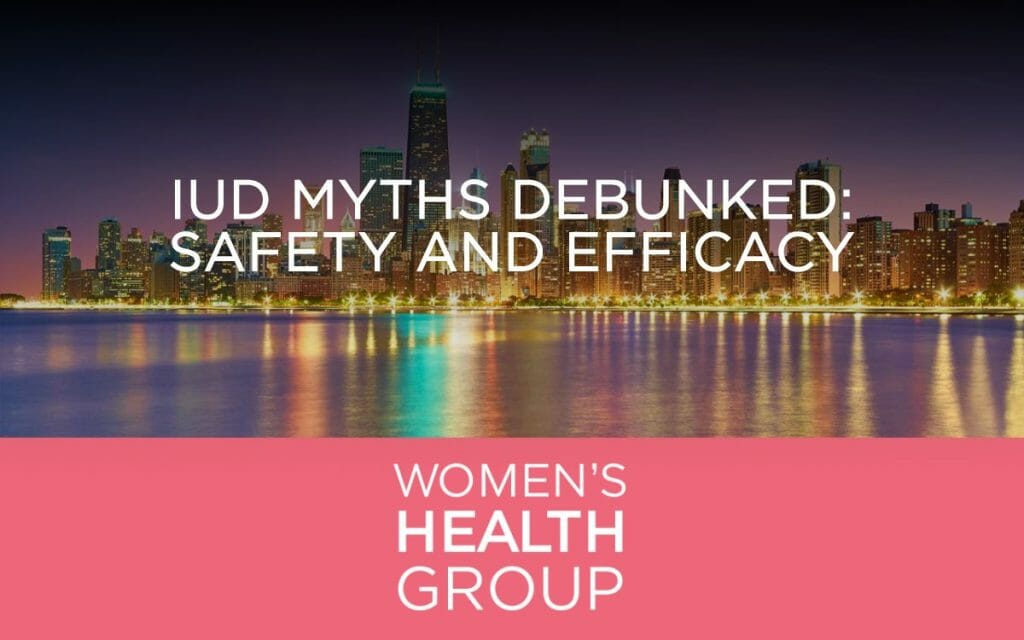Understanding IUDs and Their Significance in Women’s Health
As a Women’s Health Group and Obstetrician-gynecologist based in Chicago, Illinois, we often engage in comprehensive discussions related to contraception and family planning. A key focus for many women is the intrauterine device (IUD), a small T-shaped tool inserted into the uterus to prevent pregnancy. Unfortunately, due in part to a lack of comprehensive understanding, a number of IUD myths persist. This comprehensive guide seeks to debunk these IUD myths, emphasizing safety and efficacy in an effort to empower women with factual information.
What an IUD Is and How It Works
An IUD is a type of long-acting reversible contraception (LARC) and comes in two forms: hormonal and non-hormonal (copper). Both types of IUDs work by changing the way sperm cells move so they can’t reach an egg, essential for pregnancy. Hormonal IUDs release progestin, a hormone that thickens your cervical mucus to keep sperm from reaching the egg and thins the uterus lining to prevent a fertilized egg from attaching. A copper IUD works by releasing copper, which is toxic to sperm.
Dispelling Common IUD Myths
Despite their high effectiveness, several IUD myths have dissuaded women from considering them as a contraception option. We will now debunk these misconceptions one by one:
IUDs Are Not Safe
One common myth is that IUDs are unsafe. Contrary to this belief, both types of IUDs have been proven safe for most women, including those who have not yet had children. The risk of serious complications, such as perforation of the uterus or severe infection, is very low, according to Mayo Clinic.
IUDs Affect Fertility
Another misconception is that IUDs may decrease fertility. In reality, an IUD does not affect either current or future fertility. Once it is removed, fertility returns to its normal levels shortly after, as the U.S. Office on Women’s Health clarifies.
IUDs Cause Discomfort or Pain
Concerns about discomfort or pain are also common among women contemplating the use of an IUD. While some women might experience mild discomfort during the insertion procedure, typical daily activities or sexual intercourse should not increase discomfort or pain. Over-the-counter pain relief can also alleviate any immediate post-insertion discomfort.
IUDs Increase the Risk of STDs
There is no scientific backing for the myth that IUDs increase the risk of sexually transmitted diseases (STDs). IUDs only provide pregnancy protection and do not offer any defense against STDs. To protect against STDs, consider using condoms in combination with IUDs.
The Role of IUDs in Efficient Family Planning
The effectiveness and reversibility of IUDs make them an excellent choice for those seeking reliable but not permanent contraception. IUDs require minimal maintenance and can prevent pregnancy for years, but can also be removed at any time, offering flexibility for women who may wish to become pregnant in the future.
Professional Guidance in IUD Decision-making
Obtaining accurate information about IUDs is crucial in the decision-making process. In debunking these common IUD myths, we hope to empower you with the knowledge needed to make informed decisions about your contraceptive options. Partnering with a trusted obstetrician-gynecologist can provide further personalized advice and address any unique concerns or needs.
In Closing
Misinformation can often lead women away from understanding all their contraception choices fully. Debunking myths surrounding IUDs is vital for encouraging women to consider this effective, low-maintenance choice confidently. By dispelling these myths, we hope that women can gain a better understanding of their reproductive health options and make decisions best suited to their personal needs and circumstances. Empowered with accurate information and professional guidance, an informed choice about contraception can indeed be the most rewarding.




